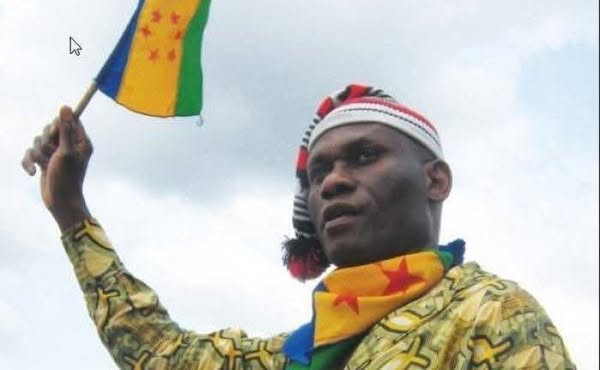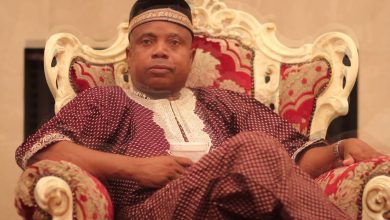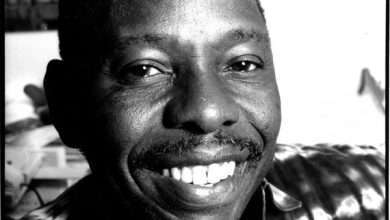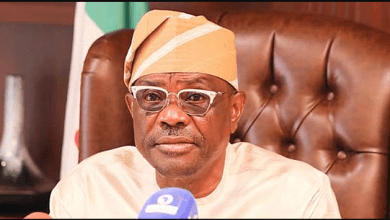A Call for Truth, Not Symbolism—Why I Reject the Award and Pardon – By Dr. Goodluck Diigbo

There are moments in history when a nation must confront its past—not with gestures, but with truth. Today, I find myself at such a crossroads, compelled to reject the award and pardon extended to the Ogoni Nine, including Ken Saro-Wiwa. I do so not out of defiance, but out of moral necessity.
I could have been one of them. I have lived under the shadow of death, declared the most wanted, hunted by forces that sought to silence me. Eleven times, I have defied assassination. Eleven times, I have stood at the edge of oblivion, refusing to surrender, refusing to abandon the just cause of the Ogoni people. I have walked the path of exile, carrying the weight of a struggle that has cost lives, homes, and dreams. And yet, I am here—not because I am lucky, but because history has unfinished business.
Your Excellency, a pardon is not justice. A pardon suggests that the Ogoni Nine were rightly convicted but are now forgiven. But they were never guilty. They were executed for speaking the truth, for daring to demand dignity for their people, for refusing to bow to oppression. What is required is not forgiveness, but exoneration—a full acknowledgment that their conviction was unjust, their execution a crime against humanity, and their struggle a legitimate fight for environmental justice and indigenous rights.
Ken Saro-Wiwa understood the weight of this struggle. In his prison writings, he declared:
“The writer cannot be a mere storyteller; he cannot be a mere teacher; he cannot merely X-ray society’s weaknesses, its ills, its perils. He or she must be actively involved in shaping its present and its future.”
These words are not just reflections—they are instructions. They are the responsibility he left behind for me, for all who continue this fight. He did not write for recognition; he wrote to mobilize, to awaken, to demand justice. His execution was meant to silence him, but his words remain a living force, compelling us to act.
Saro-Wiwa also wrote of me:
“He was quite a godsend, being a good organizer and far more knowledgeable about the psyche of the Ogoni people at that time than I was. He lived among them; I did not. He knew the power of the Christian churches over the people; I was not aware of it. He also knew well the influence of radio as a mobilizer, working as he did in the state radio broadcasting station, Radio Rivers.”
I carry his words with me, not as praise, but as a responsibility—a responsibility to ensure that his legacy is not rewritten, that his sacrifice is not reduced to a political gesture. His execution was meant to erase him, but his words remain a living force, compelling us to act.
The world recognized this injustice. Hundreds of United Nations Ambassadors condemned the executions, calling them a travesty of justice. British Prime Minister John Major described the trial as “fraudulent,” the convictions as a “bad verdict,” and the executions as “judicial murder”. These words are not mine—they are the words of the international community, the words of leaders who understood that what happened on November 10, 1995, was not justice, but state-sanctioned murder.
I am not asking you to do anything new. I am asking you to accept the reality that has already been acknowledged by the world. I strongly believe that you seek closure, that you wish to turn the page on this painful chapter in Nigeria’s history. I will work with you to alter the current landscape of acrimony, to build a path toward true reconciliation. But reconciliation cannot be built on symbolism alone—it must be rooted in truth, integrity, and historical correction.
Your Excellency, I urge you to review the pardon and consider an exoneration of the Ogoni Nine. This would not only correct a historical wrong but also reaffirm Nigeria’s commitment to justice, truth, and reconciliation. Exoneration would send a powerful message—that Nigeria does not merely seek to move forward but to heal the wounds of the past with honesty and integrity.
If you replace pardon with exoneration, I would admire your award as genuine, because in any clear conscience, guilty heroes are never given awards. The world does not honor those who are forgiven—it honors those who are vindicated. The Ogoni Nine were not criminals; they were martyrs for justice. Their names deserve to be lifted not as pardoned men, but as exonerated heroes.
Furthermore, I extend an offer for dialogue. The Ogoni people have long sought a genuine resolution to our struggle—one that ensures environmental restoration, indigenous autonomy, and economic justice. I am willing to engage in a constructive conversation with your administration to explore pathways toward a meaningful reconciliation that respects the dignity and rights of the Ogoni people.
History will judge us not by the awards we give, but by the justice we uphold. I implore you to take this opportunity to right a historical wrong, to stand on the side of truth, and to ensure that the legacy of the Ogoni Nine is honored not with symbolic gestures, but with substantive justice.
I await your response and remain open to dialogue in the spirit of true reconciliation and national progress.
Sincerely,
Dr. Goodluck Diigbo James
President, Ogoni Central Indigenous Authority (OCIA)



